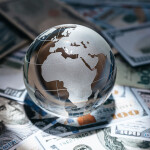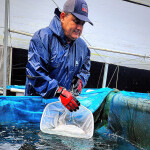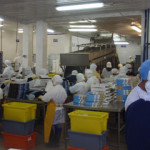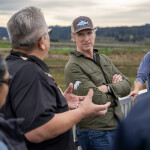It is often said during a divorce that the only people who benefit from the proceedings are the lawyers because they make money regardless of the outcome. The same seems to be true in the ongoing saga of exporting Vietnamese pangasius to the United States. And lawyers on both sides of the dispute are lining up for yet another big payday.
This follows the recent decision by the U.S. Department of Commerce (DOC) to retrospectively increase antidumping tariffs on frozen pangasius fillets imported from Vietnam on a massive scale. So much so that exporters will now have to pay more in duty than they received from the sale of the fish in the first place, and many producers are already saying that they will be unable to export to the United States if the new tariff levels are confirmed in March.
Not surprisingly, the Vietnam Association of Seafood Exporters and Processors (VASEP) is fighting the DOC’s decision, and lawyers are helping the organization prepare a report “that will show DOC’s calculation of tax tariffs on Vietnamese pangasius products was based on an inaccurate set of data.”
This is not the first time that VASEP has taken legal action in trade disputes with the United States, and questions are now being asked as to how much all this action is costing the Vietnamese seafood industry and what is it getting in return.
For whatever reason, the U.S. government and its agencies appear to be so set against allowing pangasius from Vietnam to be sold in the United States. Even if this latest dispute is resolved in favor of Vietnamese exporters, then sooner or later another obstacle will be placed in their path.
This view may seem farfetched, but who would have believed the hoops through which Vietnam pangasius producers have so far been made to jump. From not being allowed to call their pangasius species “catfish” to now being made to call their pangasius species “catfish,” for example, is almost laughable if it wasn’t so serious.
So far, Vietnamese exporters have resisted becoming involved in a war of words with U.S. channel catfish farmers, who say Vietnamese pangasius is taking over their market, even though the ammunition is there. Sources familiar with both industries have pointed out that the channel catfish farmers in the South are not always the good guys.
It is alleged, for example, that in the summer crop dusters “bomb” catfish ponds “with all kinds of herbicides and pesticides” as they are situated next to soybean and cotton fields, and it is “too complicated” to plan a route to leave the catfish ponds alone. As a result, dioxin residues found in U.S.-raised catfish are high during these periods, a fact of which consumers are so far blissfully unaware.
However, it does seem that Vietnamese exporters are considering retaliatory action over trade, potentially igniting a trade war. “In the worst scenario, if Vietnamese enterprises still have to bear these unjust tax levels, it’s very likely that we will take a similar action by importing foodstuffs for livestock from other markets rather than the United States,” said VASEP VP Nguyen Huu Dung, adding that the United States recently became the largest foodstuffs provider to Vietnam.
However, there is a third, and less controversial, course of action that Vietnamese exporters could take. Instead of spending millions of dollars on legal fees, what if this money was spent on promoting pangasius directly to the American public?
Pangasius is a mild-tasting white-fleshed species that is competitively priced, which consumers are looking for in these budget-conscious times. So, tell American consumers what pangasius is and how it is raised and processed. Let them then make up their own minds as to whether they want to buy the fish without any third-party interference.
All Commentaries >





